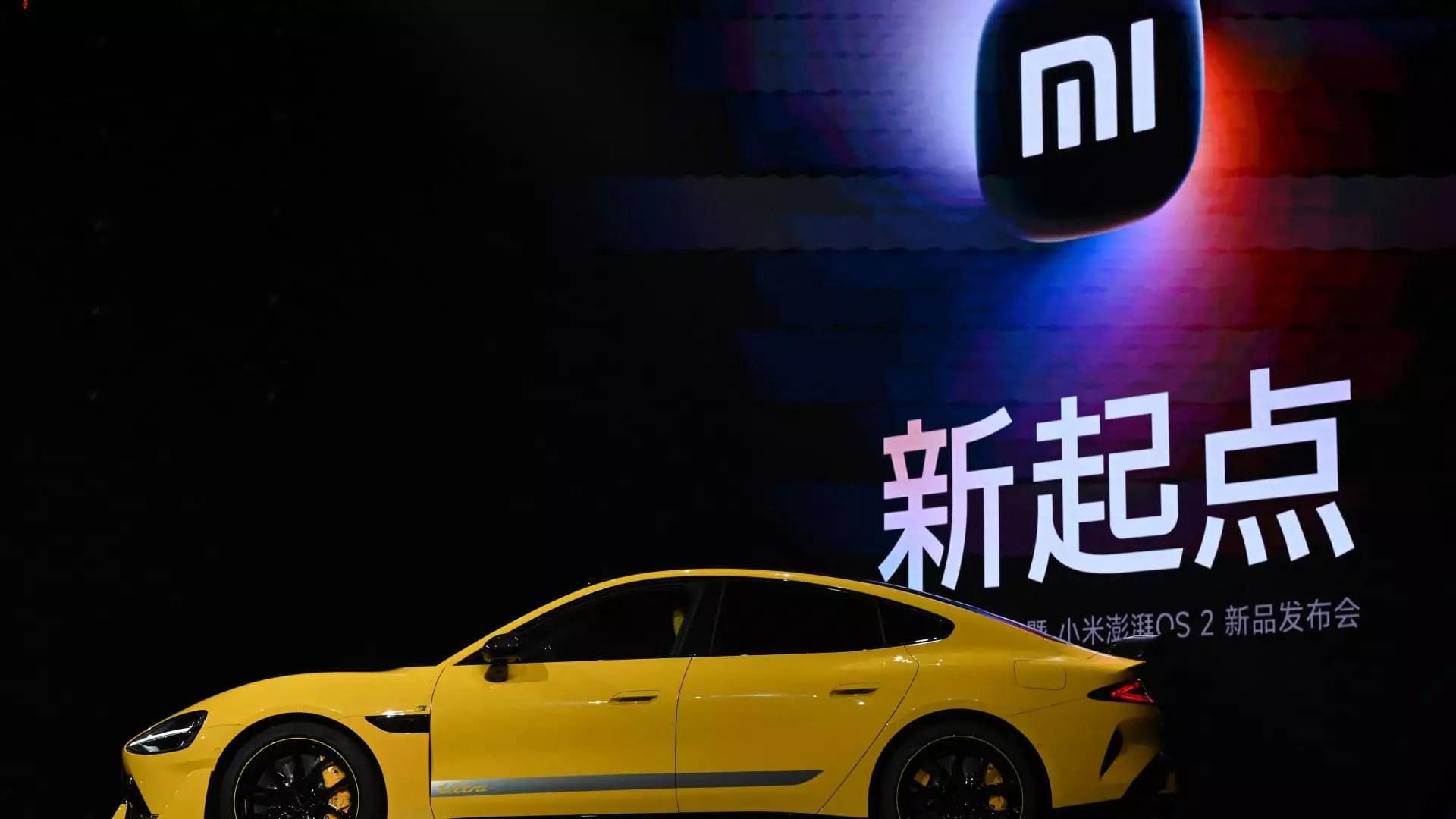In recent years, the global automotive industry has witnessed a significant shift towards electric vehicles (EVs), with several players vying for dominance within this burgeoning market. Among these, Xiaomi, a brand more recognized for its smartphones and consumer electronics, has made a considerable entrance into the electric vehicle space. This article delves into Xiaomi’s recent achievements in electric vehicle deliveries, comparative performance against its rival companies, and its future direction in the competitive landscape of EVs in China.
On a brisk October day, Xiaomi announced that it delivered over 20,000 units of its SU7 electric vehicle, marking a key milestone as the company accelerates production within a saturated market. With an ambitious target of delivering 100,000 vehicles by the end of November, Xiaomi’s entry into the EV segment showcases its rapid evolution from a tech-focused organization to a significant contender in the automotive industry.
Notably, Xiaomi debuted its first electric vehicle, the SU7, in March, pricing it around $4,000 lower than the existing Tesla Model 3 in China at that time. This pricing strategy not only affirms Xiaomi’s commitment to affordability in EVs but also serves as a competitive tactic against established brands. While Tesla responded by reducing its prices, Xiaomi’s swift actions demonstrate its willingness to adapt in a dynamic market.
Xiaomi’s impressive delivery figures stand in stark contrast to competitors like Xpeng and Nio, who have struggled to achieve similar milestones within shorter timeframes. It took Xpeng around six years to reach the 100,000 unit milestone in EV production, while Tesla took twelve years. Xiaomi’s performance is particularly remarkable given its entry into the market began only in 2021. This meteoric rise in delivery numbers could position Xiaomi as a formidable competitor in an arena already crowded with seasoned players.
Among its competitors, Xpeng recorded a record 20,000 deliveries in September, although it is essential to note that a substantial portion of those sales was attributed to its newer and more affordable brand, Mona. Conversely, Nio has faced challenges maintaining consistent delivery numbers above 20,000. In another corner of the market, Geely’s Zeekr claimed it delivered 100,000 vehicles in just 1.5 years, asserting its stronghold on the performance-driven segment of electric vehicles.
Xiaomi is capitalizing on its success by launching a high-end version of the SU7, known as the SU7 Ultra, which is set to release in March 2025. The response has been overwhelming, with 3,600 preorders placed in just ten minutes, showcasing the burgeoning demand for Xiaomi’s enhanced offerings. Analysts suggest that the performance capabilities demonstrated by the prototype on the Nurburgring race track could bolster sales, particularly for the premium SU7 Max model, which is attractively priced at 299,900 yuan.
Financial analysts have responded positively to Xiaomi’s momentum, revising their delivery forecasts for next year from 238,000 to an impressive 250,000 cars. This optimistic outlook reaffirms the idea that Xiaomi is on a trajectory to become a major player in the EV domain.
Uniting Technology and Automotive Innovation
Xiaomi’s ability to merge cutting-edge technology with automotive innovation has played a key role in its success. As evidenced by the launch of its flagship Mi 15 device, which utilizes Qualcomm’s latest chipset, the company is not just a car manufacturer; it is a tech pioneer striving to integrate intelligent features into its vehicles. Such advancements could generate significant consumer interest, making the SU7 models not just cars but smart driving platforms that resonate with the contemporary digitally-inclined customer base.
While Xiaomi’s current market presence is confined to China, plans for overseas expansion signal a deeper ambition to tap into the global EV market. However, analysts foresee that it may take two to three more years before Xiaomi’s electric cars make their way internationally.
Xiaomi is proving it can hold its own in the hyper-competitive electric vehicle market. With impressive delivery numbers, innovative models, and a strategic focus on technology integration, the company appears poised to make a lasting impact in the automotive industry in the upcoming years.


Leave a Reply